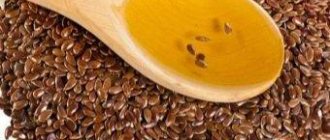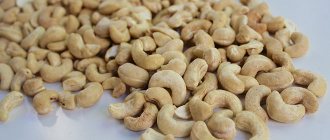Coconut oil is a new product for Russia. But they buy it, it is sold in large stores. And many are sure that it is very useful. There is a lot of information about this on the Internet. Is she really wrong? Or are the conclusions of US scientists questionable?
“The product is new not only for us, but also for the West. There, too, it is usually presented as a super product,” says Konstantin Spakhov, candidate of medical sciences, general practitioner and gastroenterologist . “However, there are few serious studies on coconut oil, and they are often contradictory. American scientists decided to clarify this issue. They pooled 16 previous studies of this product and re-evaluated the combined data. This is called a meta-analysis, and it often reveals new information that could not be identified in individual studies. That's why I trust such works. We can say that scientists have summed up interim results. All studies compared coconut oil to other oils used in cooking. Mainly with liquid vegetable oils (olive, sunflower, rapeseed, soybean, corn, etc.), as well as with solid oils: palm and butter. It was assessed how oils affect cholesterol levels, triglycerides, body weight, waist size and a number of other indicators important in relation to the development of diabetes. The article was published in the latest January issue of the famous and authoritative journal Circulation.
Heavenly pleasure for a perfect body. What are the benefits of coconut oil? More details
Is it possible to use coconut milk during breastfeeding and how is it beneficial?
Recommendations from pediatricians on nutrition for nursing mothers have undergone a lot of changes in recent years, but the opinion of doctors regarding exotic foods remains unchanged - in the first year, such foods should be consumed with extreme caution, or should be excluded from the diet altogether.
However, as with any rule, there is an exception and it concerns the fruits of a wonderful plant - coconuts and the milk produced from them. It is coconut milk that is a source of a lot of nutrients and vital vitamins, so this drink is not only not prohibited, but is even recommended for nursing women.
Let's take a closer look at why such milk is considered so healthy and what substances are included in its composition.
- Most of the beneficial properties of coconut are associated with an acid called lauric acid. This acid has a lot of unique properties, but its ability to positively influence the immune system will be especially useful for nursing mothers. Lauric acid strengthens the immune system, destroys pathogenic bacteria in the body and helps the body better fight all kinds of diseases and infections.
- Research shows that coconut and its milk have a positive effect on the condition of the circulatory system . The acids in this drink help keep blood vessels clean throughout the body and also increase the elasticity of their walls. As a result of this effect, the risk of developing thrombosis is reduced, and the heart muscle functions better.
- Everyone knows the beneficial properties of substances called antioxidants; they are also present in coconut milk. Such compounds help a woman’s body recover faster after childbirth , improve the condition of cells throughout the body and promote the active removal of toxic substances.
- Coconut milk will be especially useful for those women who have any problems with digestion and the gastrointestinal tract in general. This drink not only stabilizes the functioning of this system, but also helps relieve symptoms such as heartburn, cramps and pain in the peritoneum .
- Surprisingly, coconut milk is the richest source of the microelement iron . This substance is actively involved in the processes of hematopoiesis, and its lack can cause a dangerous disease - anemia. For nursing mothers, iron is doubly useful - since breast milk is essentially produced from blood, its normal production contributes to better lactation.
- Coconuts contain the mineral potassium . Doctors classify it as a vital substance, since this element is involved in the processes of maintaining water-salt balance in the body. This means that at normal levels, potassium helps remove excess fluid from the body of a nursing mother, which helps get rid of edema and lower blood pressure.
Coconut oil for face
After such a rich list of benefits, coconut oil seems like a real superfood, not only from a gastronomic point of view, but also from a cosmetic one. Yes, it has pronounced moisturizing, antibacterial and restorative properties, but when used on the face, everything is not as simple as we would like. Adding coconut oil to your skin care arsenal should be done with great caution. Now we'll tell you why.
Who is coconut oil suitable for?
According to our expert cosmetologist Anastasia Sablina, only people with very dry or problem-free skin can use coconut oil as a facial product. But even then it should be used no more than once a week. In addition, it is not recommended to buy unrefined oil for the face: firstly, it is more allergenic, and secondly, it is not as “pure” as refined oil.
Western experts share the same opinion:
“Coconut oil has one of the highest comedogenic ratings, which means it can be a big problem for sensitive or blemish-prone skin,” explains dermatologist Paul Dean, MD. “It can actually suffocate your skin by clogging your pores because it mostly stays on the surface.”

Oil instead of cream - yes or no?
A fairly common piece of advice regarding coconut oil in the beauty industry is to use it instead of a day or night cream. However, according to Anastasia, this is strictly forbidden: coconut oil applied to the face can, on the contrary, dry out your skin or cause painful rashes due to clogged pores.
Also, never try to mix regular cream and coconut oil - you will ruin both products and your skin.
Another commonly mentioned option for using coconut oil is as an eye cream substitute. This method may seem very attractive to those who regularly wake up with bags under their eyes. But we will disappoint you again: it is better to undergo a medical examination in order to eliminate the underlying causes of this phenomenon and not experiment with the delicate skin of the eyelids, which can easily result in the appearance of milia (subcutaneous acne).
Facial products should keep your skin hydrated, but still be lightweight enough not to clog your pores. Unfortunately, coconut oil is not suitable for this.
Let us repeat once again: the use of coconut oil on the face is justified only in case of excessive dry skin, and it is advisable to consult a cosmetologist.
If you still really want to use coconut oil on your face, it is better to limit yourself to the “mask regime”: apply the oil to clean skin for 15–20 minutes, and then rinse thoroughly with cleanser.
A really good idea is to buy cosmetics that contain coconut oil. There it is, as a rule, in a dosage that will not harm your skin.
Nourishing body oil “Coconut Paradise”, 250 ml, 550 rub.
Body scrub “Coconut Paradise”, 225 ml, 550 rub.
Hand cream “Coconut Paradise”, 75 ml, 320 rub.
Nutley coconut oil, cold pressed, 500 ml -15%
570 rub. 670 rub.
Organic Art Organic Extra Virgin Coconut Oil, 200 ml -5%
285 rub. 300 rub.
Bestofindia coconut oil, edible, 100% natural unrefined, cold pressed, 500 ml, at -28%
872 rub. 1210 rub.
Bestofindia coconut oil, food grade, 100% natural unrefined, cold pressed, 500 ml -29%
838 rub. 1180 rub.
Coconut oil for hair, face and body, 60 ml, -20%
243 rub. 303 rub.
Even more skincare products on TEA.RU
Other Ways to Use Coconut Oil for Your Face
- Try using coconut oil as an extra remedies against herpes
. The fatty acids that make up this product (especially lauric acid) can fight viruses, including the herpes series. It has been experimentally established that regular application of coconut oil to the affected areas of the skin, although it does not replace drug therapy, definitely helps to quickly get rid of annoying pimples and alleviate discomfort.
- As we said above, coconut oil has some degree of UV protection. Instead of regular hygienic lipstick with a UV filter
you can use this natural product.
- Coconut oil is good facial massage product
: You can give yourself an at-home spa by applying a small amount of oil (but this is also an option for people with dry skin only).

Negative consequences of drinking coconut milk by a nursing mother
Despite the abundance of beneficial properties, pediatricians recommend that nursing mothers be careful with coconut milk. The thing is that the use of this product in some cases can cause serious side effects, which every nursing mother should definitely remember.
- It is no coincidence that the coconut is named so - although it is not a nut in itself, such a fruit has exactly the same level of allergenicity, and this primarily concerns the baby. Symptoms of an allergic reaction may include skin rashes, problems with the baby’s stool, watery eyes, and difficulty breathing.
The calorie content of coconut milk is 445 kilocalories per cup, which is why such a drink should not be abused, especially if the nursing mother has gained a lot of excess weight during pregnancy.
- Of course, in reasonable quantities, coconut milk lowers blood cholesterol levels, but regularly consuming large amounts of it can lead to the opposite effect. Saturated fats accumulate on the walls of blood vessels, causing them to become clogged.
- Also, mothers who suffer from diarrhea and other similar digestive problems should not drink coconut milk. Such a drink will further aggravate the disorder and can lead to serious complications.
- If a nursing mother has kidney problems or suffers from urolithiasis, she must consult with her doctor before drinking coconut milk. The abundance of potassium in this nut can provoke the displacement of large stones and blockage of the ducts; in addition, an increased load on the kidneys sometimes leads to an even greater deterioration in health.
Beneficial features
Coconut contains a large number of useful elements, including vitamins B, C and E, the minerals calcium, sodium, iron and potassium. These substances are necessary for the full growth and development of the baby, as well as for the mother for a quick recovery after childbirth.
Coconut performs the following beneficial functions:
- Improves vision;
- Restores strength and vitamin deficiency;
- Relieves fatigue and fills the body with energy;
- Stabilizes hormonal levels and reproductive functions;
- Strengthens the structure and improves the appearance of hair and skin;
- Effectively heals wounds;
- Maintains fluid balance in the body and prevents dehydration;
- Stimulates and normalizes digestion;
- Strengthens the immune system, protects the body from dangerous bacteria and infections;
- Improves blood composition;
- Strengthens blood vessels;
- Reduces blood cholesterol levels;
- Removes toxins and waste, cleanses the body;
- Normalizes the functioning of the thyroid gland;
- Prevents gastritis, kidney and liver diseases.
Coconut, coconut milk and oil are recommended for use by athletes, pregnant and lactating women. These products perfectly relieve fatigue and tension, saturate the body with vitamins and vigor, and help cope with heavy physical activity.

How and When to Introduce Coconut Milk During Breastfeeding
The main uniqueness of coconut milk is the high concentration of all substances in it. On the one hand, this is good, because it is precisely thanks to this feature that it is so useful. However, do not forget that substances that cause a negative reaction in the baby are also present in the drink in large quantities.
For this reason, the introduction of coconut milk begins not with the drink itself, but with the pulp of the nut. By the way, it is from this that such milk is obtained.
The first attempt to introduce coconut into a nursing mother’s diet can be made as early as 3 months after birth. Although the nut is considered exotic, it causes allergies in babies relatively rarely.
For the first time, it is recommended to eat a small piece of pulp measuring 2 by 2 centimeters, and then observe the baby’s reaction. If no allergy symptoms occur within 24 hours, then the substances in the coconut pulp are digested normally and you can try milk.
The procedure for introducing such a drink is exactly the same as in the case of pulp, however, only one teaspoon of milk is used for the first tasting. Gradually this volume increases until it reaches 100 milliliters. This is the amount per day that is considered safe for a nursing mother and her baby.
You should not drink such a drink more than once or twice a week.

How to choose a fruit to eat?
When choosing a coconut for purchase, it is advisable to pay attention to the following signs of a fresh nut:
- when shaking the fetus, the sound of splashing liquid should be heard;
- the shell must be free of any damage: stains, dents, cracks, areas of mold or rot;
- an opened coconut smells pleasant, sour or sharp notes in the bouquet of aroma indicate souring of the coconut water and spoilage of the pulp;
- The taste of coconut is pleasant, without bitterness or any additional tastes.
Attention!
If there is the slightest suspicion that the coconut you have received is of poor quality, its tasting should be postponed and the fruit should be disposed of.
Tips for choosing and consuming coconut milk during lactation
- You can find canned coconut milk in cans at the store. When purchasing it, you must pay attention to the integrity of the packaging, as well as the expiration date of the product - a low-quality drink can cause severe food poisoning.
- It is best to add coconut milk to other dishes rather than drink it in its pure form, for example, it can be mixed with vegetable cream soup.
- If your baby is allergic to milk and dairy products, then a coconut product will be an excellent substitute. Most often, this drink is used as an analogue of regular sour cream.
You can prepare coconut milk yourself; to do this, you just need to grind the fresh pulp and pour boiling water over it. Then, after infusing for half an hour, it should be squeezed out through gauze and with the resulting cake, repeat a similar procedure two more times. Such milk should be stored in the refrigerator.
In conclusion, I would like to note that self-made coconut milk is preferable when breastfeeding. Such a product, first of all, is definitely fresh, and therefore will not lead to food poisoning, and in addition, it is completely natural and contains the maximum amount of useful substances.
Rules for introducing into the diet
The main principle is gradualism and starting with small quantities. It is necessary to start doing this no earlier than 3-4 months of the child’s life. For the first time, an amount of milk equal to 2-3 tablespoons will be enough. One teaspoon of shavings will be enough. In order to reliably track the baby’s body’s reaction, no new products are introduced at this time. If no changes occur, then consumption can be continued, gradually increasing the one-time amount of the useful product.
lemon during breastfeeding











